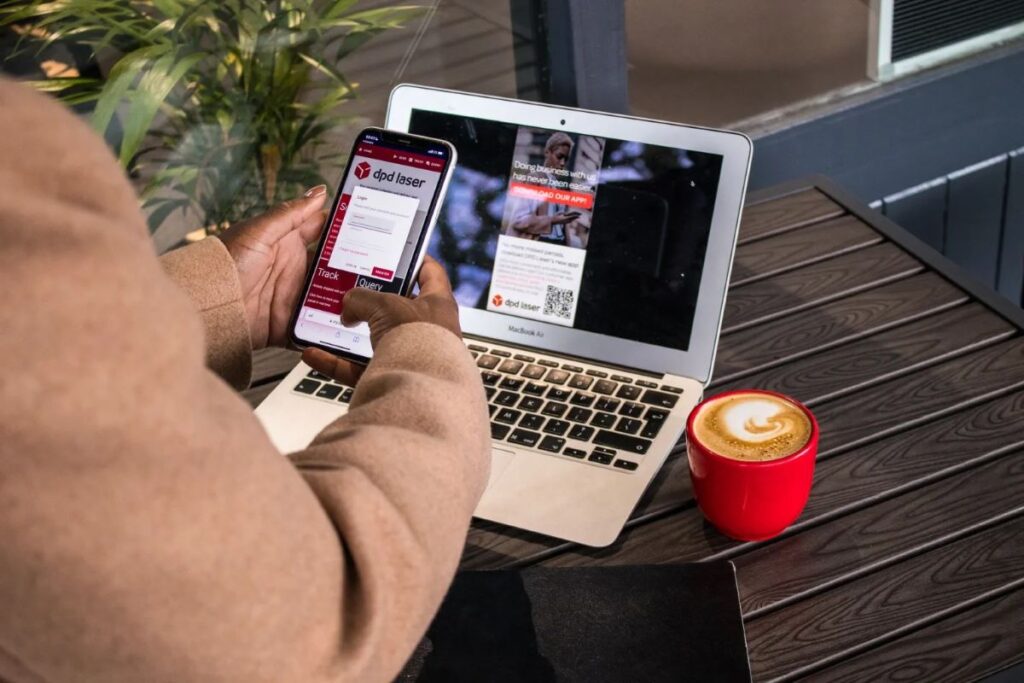In today’s rapidly evolving world of e-commerce, one thing is
abundantly clear: the receiver holds the reins. It’s the receiver—the
customer—who ultimately dictates the trends and expectations that
shape the industry. And, as someone deeply entrenched in the
e-commerce landscape, I can confidently say that what the receiver
wants, above all, is certainty when it comes to delivery times.
From a trend perspective, this pursuit of certainty in delivery times
has been a driving force in the e-commerce industry. It’s not just
about speed; it’s about precision and reliability. As we all know,
there are instances when speedy delivery is crucial—like when you
urgently need that replacement laptop charger or a last-minute gift
for a special occasion. But what I’ve observed, time and again, is
that the standard e-commerce receiver wants something more
fundamental: to be informed, accurately, and in a timely manner.
Imagine this: you place an order online, and instead of being left in
the dark about when your precious package will arrive, you’re provided
with a precise one-hour delivery window. This is precisely what we’ve
witnessed in Europe, where DPD Group’s service, aptly named Predict,
offers customers a one-hour delivery window as a standard service.
It’s a level of precision and reliability that we’re working hard to
bring to the South African market.
So how does this work? It’s actually a pretty simple concept, but it
requires a host of interconnected elements to function seamlessly.
First and foremost, your address must be 100% correct so that elements
of route planning can happen the night before the vehicle actually
goes out for delivery. This ensures that you receive a notification
prior to the vehicle even leaving the depot. It’s all about meticulous
preparation to meet that one-hour window commitment.
But it doesn’t stop there. To truly offer a one-hour delivery window,
you must be able to communicate in real time with the receiver. In our
current landscape, our primary source of communication with the
receiver is through SMS, as platforms like WhatsApp remain
cost-prohibitive. This bridge is pivotal in ensuring that the receiver
is informed and engaged throughout the delivery journey.
Now, you might wonder, why is this such a game-changer? Well, it’s all
about empowering the receiver. When you know with certainty that your
parcel will arrive within a certain window, you can plan your day
accordingly. You can ensure that someone is available at home to
receive the delivery, eliminating the frustrating missed deliveries
and wasted time. It’s about respecting the receiver’s time and
providing a service that aligns with their busy lives.
In South Africa, it’s difficult to guarantee certainty, simply because
there are so many unpredictable factors that thread through our daily
life, from load shedding to protests, road closures, and even
sinkholes.
One significant challenge: high-risk areas and townships. It’s a
reality that the cost to serve these areas is higher, primarily due to
factors like lower critical mass and security concerns. So, it becomes
a collective responsibility as a country. How do we encourage
individuals in township areas to embrace e-commerce and become part of
the critical mass? When we achieve this critical mass, we’ll witness
couriers working diligently to resolve the challenges posed by these
areas. The result? Reduced costs, improved service, and a more uniform
delivery experience across South Africa. This is precisely what
e-commerce merchants desire—a consistent experience whether you’re in
Soweto or in Sandton.
Before I get ahead of myself, our country has a world of realities to
manage right now. These curveballs are the things that change
certainty and windows into uncertainties and understandably irate
customers from time to time. Given the number of parcels we deliver
daily, it’s a very small number that does not receive what they want
when they want it, as our delivery rate is over 98%.
When looking at technologies to increase efficiency, it’s easy to jump
into the future and talk about self-driving cars and drones. But
before we prematurely dive into that, we will need to prioritise
electric vehicles (EVs). Sustainability, driven by the
environmentally-conscious consumer, is at the forefront of our
collective consciousness. We must look beyond just EVs; it’s about how
productive they are and how the electricity powering them is
generated. It’s about exploring alternatives to plastic, flyer bags,
and packaging—embracing a holistic sustainability approach. We are on
this path at DPD ZA right now.
I firmly believe that the on-demand space will be the first to embrace
this change. And, personally, I’m super excited about the potential of
line haul space, envisioning a future where robots efficiently
traverse the distance from Johannesburg to Cape Town. The technology
exists, and it’s a thrilling prospect.
In conclusion, as the e-commerce landscape continues to evolve, the
demand will always hail from the receiver. Certainty in delivery times
isn’t just a preference; it’s a fundamental expectation. We are not
there yet, our European parent company is understandably way ahead of
us but remains an important mentor as we work steadily to narrow the
delivery window in the South African market. We’re not just meeting a
trend; we’re ushering in a new era of sustainable, technology-driven,
customer-centric e-commerce. That is truly exciting.
By Devon Light, General Manager, Commercial and International, DPD ZA
Brandstories Disclaimer:
Brandstories is not liable for the contents of the information published on this platform. The information which subscribers publish on this website is for general information purposes only and Brandstories facilitates the ability for viewers and subscribers to access this platform. Subscribers who publish their content on Brandstories are held responsible for their own content. This includes ensuring that it is factually accurate, grammatically correct, free of spelling errors, and does not contain unsavoury content that could result in legal action. In the case of linguistic translations, the onus is on the client to ensure that the translation is accurate. In no event does Brandstories make representations or warranties of any kind, expressed or implied about the completeness, accuracy, reliability, suitability or availability with respect to the information supplied and published. This website includes links to other websites, including third party websites. Brandstories does not recommend, endorse or support any views that are held by subscribers publishing information, and within these links provided. Furthermore, Brandstories does not have control over the nature, contents and availability of information contained on these sites. Any form of reliance readers and consumers may place on information published on Brandstories is strictly at their own risk. Brandstories makes every effort to ensure that the website is up and running smoothly at all times, however Brandstories does not take responsibility for, and will not be held liable for times when the website is temporarily unavailable due to technical glitches that are beyond our control.
You may also like
-
When it comes to parcel delivery, few names resonate on a global scale quite like DPD. The company’s reach, credibility, and the esteemed network it belongs to are nothing short of phenomenal. In this article, we delve into the vast expanse of DPD and its associated companies around the world, unveiling a picture of unmatched expertise and commitment. At its core, DPD South Africa is backed by Geopost, the majority shareholder. Geopost, a true multinational juggernaut, operates in 49 countries across all continents. It boasts an extensive network of expert delivery brands, each a leader in its respective domain. These include DPD, Chronopost, SEUR, BRT, Speedy, and Jadlog, collectively serving as a testament to Geopost’s global prominence. With 57,000 dedicated employees, Geopost is on a mission to make commerce more convenient, profitable, and sustainable for its customers and the communities it serves. A remarkable feat is Geopost’s commitment to becoming an international reference in sustainable delivery. It stands as the first global delivery company to have its roadmap to Net Zero by 2040 approved by the Science Based Targets initiative (SBTi). Geopost’s influence spans borders and is setting an industry standard that others can only aspire to reach. Local Partnerships and Powerhouses In the local arena, DPD South Africa enjoys the support of The Laser Group, a minority shareholder. The Laser Group is a proudly South African company, proudly majority black-owned, and holds the distinction of being one of the largest independent logistics businesses in the country. This local collaboration adds a uniquely South African touch to the global excellence that DPD embodies. An International Partner of Unmatched Stature Geopost, with its DPDgroup, reigns supreme as the largest international parcel delivery network in Europe. DPDgroup seamlessly blends innovative technology with local knowledge, creating a flexible and user-friendly service that benefits both shippers and shoppers. Geopost’s revolutionary Predict service, for instance, has set a new industry standard for convenience, ensuring that customers stay closely connected with their deliveries. With a colossal workforce of 122,000 delivery experts and an astonishing network of more than 58,000 Pickup points, DPDgroup achieves an awe-inspiring feat – delivering 8.4 million parcels each day, amounting to a staggering 1.9 billion parcels annually. The Global Success Story Continues The DPD business units function as the parcel delivery network of GeoPost, a holding company with sales soaring to €11 billion in 2021. Geopost is owned by Le Groupe La Poste, underlining the significance and reach of DPD’s corporate family. In sum, DPD isn’t just a parcel delivery company; it’s a global powerhouse that epitomizes excellence in logistics. Its association with Geopost and the extensive network of delivery brands it encompasses speaks volumes about its global standing. DPD isn’t just delivering parcels; it’s delivering on a promise of unparalleled service, worldwide. By the Numbers: DPD’s Global Impact Number of parcels delivered every single day: 7.5 million Annual Revenue: €11 billion Countries DPD can ship to via its network or partners: +230 Delivery Experts: 97,000 Countries in which DPD operates: 50 Number of parcels delivered per year: 1.9 billion https://www.dpd.com/za/en/
-
Driving tech integration to accelerate business growth
-
Survive or thrive: SA’s SMEs are needing fast capital
-
Cricket hits a six with a new SA tech-driven fan experience
-
SA’s Black Friday nightmare: Falling at the final hurdle?


